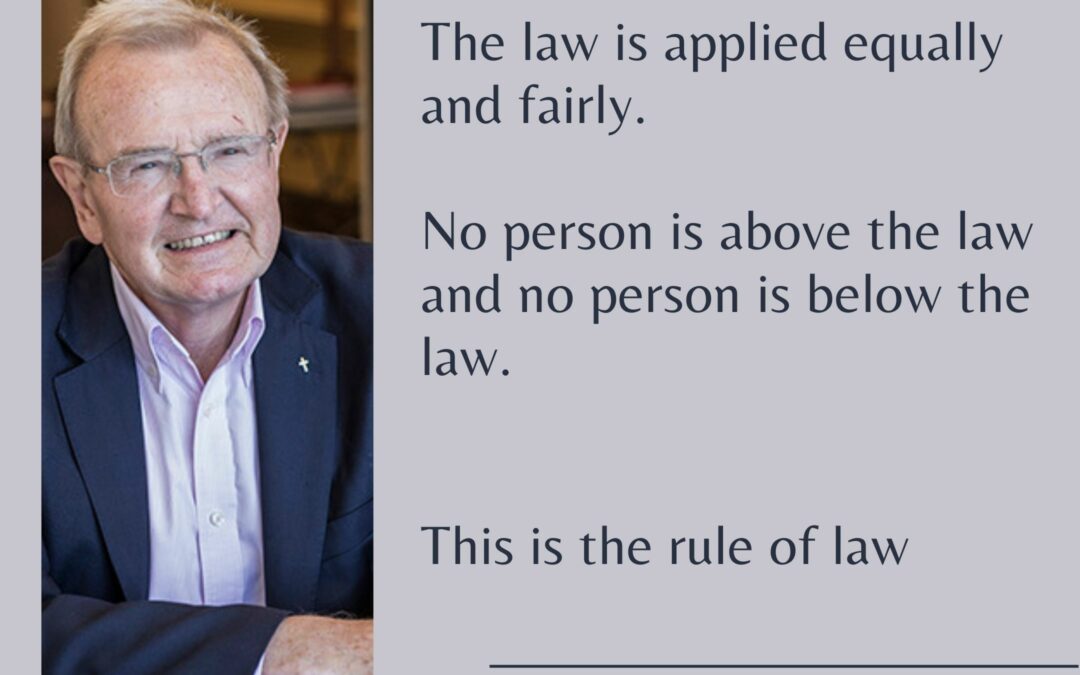The Rule of Law Institute of Australia respectfully considers the reasons of the General Editor in the May 2021 issue of the Australian Law Journal are not soundly based and is of the view that it would be contrary to the Rule of Law to hold an inquiry into whether Mr. Porter is a fit and proper person to hold the office of Attorney-General.
No person is above the law … but neither is no person below the law.
That is one of the cardinal principles of the Rule of Law.
Porter holds the office of Attorney-General, and in accordance with that principle the law has operated. A rape allegation was made against Porter and the police duly investigated. They decided that there was insufficient evidence to prosecute and there has been no suggestion that there was anything wrong with the investigation or that Porter interfered with it.
Porter is now entitled to the protection of the law.
The General Editor does not dispute the police investigation or that it would be contrary to the Rule of Law to order another police investigation simply because you want a different result. Instead, he reasons that it would not be contrary to the Rule of Law to hold an inquiry into whether Porter is a fit and proper person to hold the office of Attorney-General as such an inquiry would have a separate object than that of the police investigation, namely whether Porter is a fit and proper person to hold the position of Attorney-General having regard to the rape allegation.
The possible terms of reference of such an inquiry expose why such an investigation would be contrary to the Rule of Law.
- If the terms of reference of the investigation ask the investigator to assume the rape allegation could be proved beyond reasonable doubt … there would be no point in the inquiry as the assumption would answer the question.
- If the terms of reference ask the investigator whether it could be proved on the criminal standard of proof that the rape allegation occurred the investigation would mirror that of the police investigation. It would be contrary to the Rule of Law to hold such an inquiry notwithstanding its different object because the police have already duly investigated the matter and come to a conclusion not to prosecute.
- If the terms of reference ask the investigator to investigate whether the allegations could be proved using a lower standard of proof than the criminal standard that would be contrary to the Rule of Law because Porter would be investigated on a basis different from any one else
Which of those alternatives the General Editor contemplates is not clear, but he argues that such an investigation would not be contrary to the Rule of Law as it would have a separate object to the police investigation, namely whether Porter is a fit and proper person to be the Attorney-General.
But an inquiry can have no object, it is not a person, it would be an inquiry whether the inquirer considered the allegation was proved to the criminal standard or some lesser standard. An investigation outside of the criminal system would be contrary to the Rule of Law regardless of its stated object.
The General Editor is a judge of the Supreme Court of New South Wales and states he publishes the article in his personal capacity and on behalf of the Australian Law Journal and says that it does not necessarily reflect the views of the Supreme Court or any of its judges. But the article carries great weight and is issued right in the middle of the political debate. His reasons are therefore open to criticism.
Robin Speed
Rule of Law Institute of Australia

